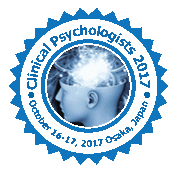
Maureen A. Onyango
DAYSTAR UNIVERSITY, Nairobi, Kenya
Title: INTEGRATING GEOSPATIAL INFORMATION AND COGNITIVE RESTRUCTURING THERAPY IN MANAGEMENT OF ANXIETY DISORDERS TO IMPROVE ACADEMIC PERFORMANCE OF ORPHANS AND VULNERABLE CHILDREN (OVC) IN SIAYA TOWNSHIP, KENYA.
Biography
Biography: Maureen A. Onyango
Abstract
Orphaned children in Kenya face the risk of lacking adequate care and protection. Grieving the loss of a parent and new living situation under new caregivers is associated with development of internalized mental disorders characterized by anxieties, low self- esteem and feelings of hopelessness. These psychological problems and the vulnerability that comes with the status negatively impact the academic performance of such children. Psychosocial intervention and incentives that target the specific needs of orphaned and vulnerable children (OVC) can reduce the impact of vulnerability on academic performance or even ensure a sustained improvement in the academic development of the children. However, no studies have been carried out to investigate the influence of social geography on effectiveness of cognitive restructuring therapy in management of mental disorders to improve academic performance of orphans and vulnerable children (OVC). In this study, we hypothesize that integrating geospatial information and cognitive restructuring therapy in psychosocial intervention programs that are tailored to appreciate the differences in the geography and socio-economic characteristics of orphaned and vulnerable children perform better in improving the academic performance of such children. Random spatial sampling will be used to identify and to group orphaned and vulnerable children into two categories of control group and the treatment group. The respondents in the treatment group will undergo cognitive restructuring therapy with a focus on improving their psychosocial health, character development and on their academic performance. Systematic home-based survey will be carried out to document the spatial and socio-economic characteristics of the homesteads of the respondents in the survey. Methods from statistics and geographic information systems (GIS) will be used to analyze and to map the data to reveal the influence of spatially informed cognitive restructuring therapy on the academic performance of OVCs.

